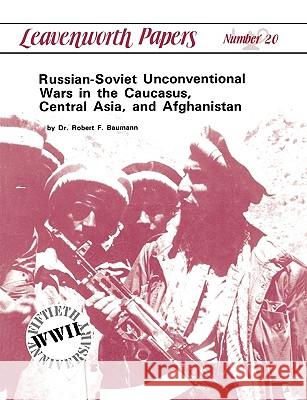Russian-Soviet Unconventional Wars in the Caucasus, Central Asia, and Afghanistan » książka
Russian-Soviet Unconventional Wars in the Caucasus, Central Asia, and Afghanistan
ISBN-13: 9781907521737 / Angielski / Miękka / 2010 / 228 str.
First published in 1983 this detailed study has only now been made generally available. The Russians have a long history of fighting what are now called unconventional wars. Certainly since the 18th Century, and more recently in Afghanistan and Chechnia. The early wars were fought in the Caucasus. Fighting in that region started in earnest in the early 19th Century and continued to the late 1840s. Unrest continued in the region thereafter with major uprisings in the 1870s and also following the 1917 Revolution. It continues today in the Chechnia region.As the Russian Empire expanded Russian forces dominated the Kazahk region and undertook a series of campaigns in the area between the Caspian and Aral Sea. This culminated in the assault on Khiva in 1873 and the operations in 1880-1 on the Persian border, by then the Empire was on the borders of Persia and Afghanistan. After the Revolution the Red Army conducted a long campaign in the area north of the border with Afghanistan against the Basmachis Central Asian resistance. The Soviet operations started in 1918 and the last rumblings of resistance was finally quelled in 1933, though no serious fighting took place after 1924.The Soviets had considerable experience in the conduct of and fighting against, insurgency warfare. Prior to World War II it was either suppressing or encouraging such wars on its Asian frontiers. In World War II it organised activities behind the German line in Russia as well as supporting resistance and partisan movements in eastern and central Europe. After World War II it had to deal with resistance in the Ukraine and other areas of the Soviet Union that had been liberated from German occupation. Since World War II it encouraged, supplied and trained numerous participants in insurgent wars from the large scale such as Vietnam to the insignificant. In 1979, after the Soviet military intervention in Kabul, the Red Army allowed itself to become involved in an unwinnable war. This despite the Soviet experience in such fighting that extended back to the Revolution. Furthermore their conduct of operations demonstrated their failure to comprehend how such a war should be fought.











